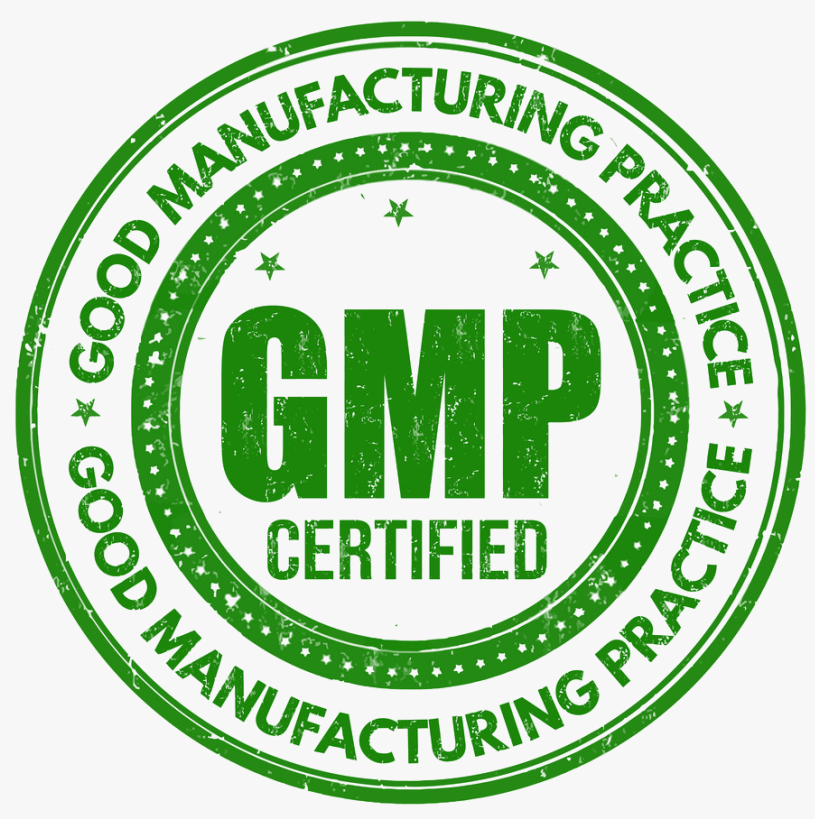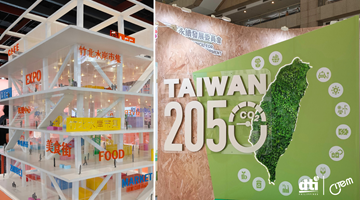POSTED Dec 15, 2022 - 11:20 AM
Product Certifications And What They Mean For Your Business
Consumers are more label conscious these days. Business certifications for sustainability might help you reach more customers
Securing certifications could be advantageous for your business. While industries like food and pharma require certain certifications in order to operate, additional accreditations may help you reach more consumers, enter new markets, and diversify your income stream.
Certifications can come from both local and international bodies. Local certifications can help ensure that your business is on par with industry standards or can reach a certain audience (like Halal or Kosher certification), while global certification means that a global body has recognized that your products have met specifications or guidelines also observed in various countries (like Certified Vegan or Cruelty-Free).
Why certifications are important
When it comes to sustainability, certifications awarded by authorized bodies also assure consumers that what they’re purchasing is in fact sustainable. For businesses, acquiring certifications that guarantee sustainability signifies that their products, systems, and people have undergone the difficult application process and can certify that they adhere to the industry standard of sustainability.
An important thing to note though is that these certifications are not free. The fees usually depend on the size of the company, but it can still be a hindrance to micro-, small, and medium enterprises.
Here’s a handy guide on certifications should you decide to get one for your business:
International
Good Manufacturing Practices (GMP)

Industry: Food
Recognition: International
A Good Manufacturing Practices (GMP) certification guarantees that your food product was manufactured under the minimum food safety and processing standards. This safety certification assures regulatory boards and customers that everything your company or brand has produced is safe and of high quality. Securing a GMP is also the first step in acquiring other food safety certifications, including HACCP (Hazard Analysis Critical Control Point).
This certification is important if you want to assure your consumers that you’re adhering to basic safety standards.
Hazard Analysis Critical Control Point (HACCP)
Industry: Food
Recognition: International
The Hazard Analysis Critical Control Point (HACCP) is a certification system that helps identify potential hazards in the production process and puts measures into place to ensure that your products adhere to the standards set by regulatory bodies and stakeholders. The HACCP takes a science- and evidence-based approach in identifying potential safety hazards, which will help ensure that the products meet basic food safety standards
This certification is important to show your customers that their safety is your priority and your processes are safety compliant.
Halal
Industry: Food and consumables
Recognition: International
If a product is marked halal, it follows the strict food and product preparation guidelines outlined in the Qur’an. A certifying body must verify that the food items or products are up to Islamic standards. This ensures practicing Muslims that the item is safe to eat or purchase. The food and materials used in production must be cleansed according to Islamic law in order to be considered halal.
A certifying body must verify that the food items or products are up to Islamic standard. This ensures practicing muslims that the item is safe to eat or purchase.
This certification is important if you want your products to be available to practicing Muslims.
Get started here.
Kosher
Industry: Food
Recognition: International
When a product is labeled as kosher, it means it is safe to eat for people who practice Judaism. Much like halal, there are scripture-based standards for food safety and preparation outlined in the Bible. Certifying food as kosher means it has gone through the rigorous inspection process overseen by a rabbinic agency and all the products produced and the materials used are in line with Biblical tradition.
This certification is important if you’re considering branching out into markets with a high percentage of people who practice Judaism.
Get started here.
Fairtrade
Industry: Agriculture, mining, textiles, and food
Recognition: International
Fairtrade is a certification that testifies the processes, labor, production, and materials that go into a product are up to internationally recognized standards. The standards “incorporate a holistic blend of social, economic and environmental criteria.” Fairtrade protects workers by giving them a voice in the production process and taking steps towards eliminating exploitation in the workforce.
You should consider applying for the Fairtrade logo if you want to show your consumers that you advocate for the same causes that Fairtrade does.
Get started here.
Certified B Corporation
Industry: Multi-industry
Recognition: International
According to their website, Certified B Corporation certifications “is the only certification that measures a company’s entire social and environmental performance.” From supply chain, personnel management, economic, and overall social impact, the certification body audits and verifies a company’s overall performance and measures it against their standards of positive performance.
The certification “doesn’t just prove where your company excels now—it commits you to consider stakeholder impact for the long term by building it into your company’s legal structure.”
The Certified B Corporation certification is important because it shows your consumers that you’ve undergone a high level of scrutiny and your company adheres to the standards the certification has set.
Get started here.
Forest Stewardship Council (FSC)
Industry: Timber
Recognition: International
For legitimate businesses that sell timber, a certification from the Forest Stewardship Council (FSC) assures buyers that the wood they’re purchasing meets environmental, social, and economic standards. The FSC certifies that each forest adheres to the local legislative requirements and that the timber sourced from those forests were not acquired through illegal means. This assures buyers that what they’re buying does not further degrade the environment and the people who worked to produce it.
FSC Certification is important because it shows your company has worked towards preserving the environment.
Get started here.
Leaping Bunny
Industry: Cosmetics, personal care, household items, animal care
Recognition: International
Leaping Bunny is an international coalition that works with different organizations across the world to ensure that products with its seal are made without any animal testing involved at any point of the production process. To be certified, companies must adhere to its rigorous testing standards, be open to independent audits, and renew their certification annually.
The Leaping Bunny certification is important to show that your company advocates against animal testing, which may be important to consumers.
Get started here.
Global Organic Textile Standard (GOTS)
Industry: Textiles
Recognition: International
The Global Organic Textile Standard (GOTS) “is the worldwide leading textile processing standard for organic fibres, including ecological and social criteria, backed up by independent certification of the entire textile supply chain,” according to its website. GOTS uses a multi-faceted approach in its product certification. GOTS oversees the production process from sourcing raw materials to labeling in order to assure consumers that the product is up to par with the body’s standards. Products certified by GOTS may include fibers, yarns, fabrics, clothing, personal care items, mattresses, and other fabric-utilizing products.
Acquiring GOTS certification shows that your business cares about the environment and the people involved in the business—as well as the sustainability of your sourcing.
Get started here.
Leadership in Energy and Environmental Design (LEED)
Industry: Infrastructure
Recognition: International
Leadership in Energy and Environmental Design (LEED) is an internationally recognized and widely used certification for green buildings. This rating and certification system “provides independent verification of a building or neighborhood’s green features, allowing for the design, construction, operations and maintenance of resource-efficient, high-performing, healthy, cost-effective buildings.”
LEED certification is important because it proves that your building is energy efficient and cost-effective.
Local
Building for Ecologically Responsive Design Excellence (BERDE)
Industry: Infrastructure
Recognition: Local
According to its website, the BERDE Green Building Rating System is “a [voluntary] tool to assess, measure, monitor, and certify the performance of green building projects above and beyond existing national and local building and environmental laws, regulations, and mandatory standards.” It is recognized by the government and conducted by qualified independent third parties to ensure that the assessment, rating, and certification of each project is impartial and objective.
Acquiring BERDE certification shows your consumers that your business is committed to going beyond mandatory environmental standards and is committed to helping the environment.
Get started here.
Green Choice Philippines (GCP)
Industry: Consumer goods
Recognition: Local
Green Choice Philippines (GCP) is a “voluntary ecolabelling programme which helps identify products or services that reduce environmental impact compared to other similar products.” What GCP takes into consideration are raw materials, extraction, recycling, and disposal methods. Any consumer goods can be submitted to GCP for evaluation and potential certification.
Acquiring a GCP certification shows that sustainability is an integral part of your business and expand your potential market to consumers who also believe in sustainability.
Get started here.
For more information and news on businesses and entrepreneurship, visit IFEXCONNECT and CREATE Philippines.
Read more

Rooted in Advocacy, Crafted for the Future
Going strong for 42 years, Manila FAME is a bold, seasoned trade show shaped by decades and transfor... Learn More

Learning the curve of sustainability: CITEM explores Taiwan’s SDG-driven industries
CITEM tracks sustainable practices in Taiwan’s transformative industries, and gets a glimpse of a... Learn More

CITEM Market Sensing Mission to Taiwan to strengthen PH SDG competency
Making serious strides toward strengthening the country’s sustainability footprint, CITEM travels to... Learn More

EU, PH push for green solutions in food industry at Sustainability Solutions Exchange 2025
Aiming to develop a sustainable Philippine food industry, the European Union (EU) and the Department... Learn More
